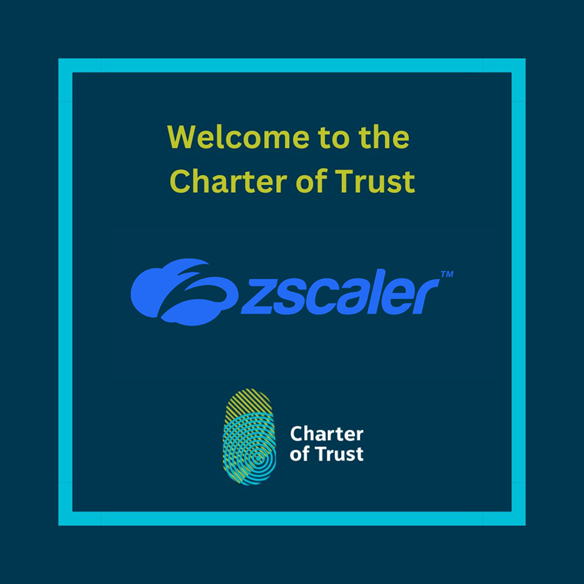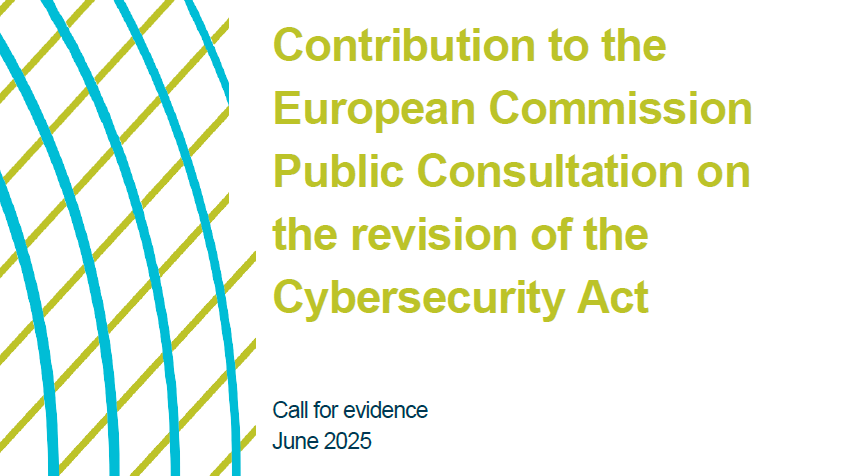To increase the overall level of security, security should be “built in” and considered from the very beginning. Therefore, the Charter of Trust defined “Security by Default” as one of its ten key principles.
By Sudhir Ethiraj, Global Lead, Cyber Security Strategy & Charter of Trust, TÜV SÜD
With the exponential growth of digitization in our everyday lives, there is also a potential widening of the attack surface. This fuels up the need to consider the principle of “Security by Design” or “Security by Default”. In other words: To increase the security level, security should be “built in” and considered from the very beginning.
The Charter of Trust defined Security by Default as one of its ten key principles. The objective: To adopt the highest appropriate level of security and data protection and ensure that it is preconfigured into the design of products, functionalities, processes, technologies, operations, architectures, and business models. It involves taking security into account right from the design phase. This helps avoid potential vulnerabilities, cyber risks and the costs associated with those risks.
Security by Default – end to end view
The principle should encompass more than just a product. It should include the processes behind the underlying architectures and the operations that enable the processes. This helps incorporate security aspects right from the outset considering a broad systemic view rather than having a narrow focus in scope. This could range from anywhere between enabling basic security trainings for the employees of an organization to following secure development principles to having a proper cyber risk management in place.
A collective responsibility
The concept of security by default also demands an immense amount of commitment from various stakeholders. It is therefore a collective responsibility of multiple stakeholders ranging from product managers to experts who are responsible for internal cyber security of an organization and to normal employees who need a basic amount of cyber security awareness. This collective responsibility must be anchored at the top of an organization. This is demonstrated very well with the work done at the Charter of Trust where we have companies across industries join hands to define what they see and perceive as necessary yardsticks to achieve Security by Default.
Addressing harmonization
We also live in a world, where standards and laws are currently being developed to address this. Within the Charter principle of “Security by Default”, we also look at the global standards and best practices which have been written from sometimes very different yet good perspectives and try to harmonize them by creation of the so-called “baseline cyber security requirements”. These are then aimed to enhance the Cyber Security stance of organizations who are currently starting out to ensure cyber security.
Ensuring Security by Default – Verification
These requirements also need to be verifiable in order to make sure that regular monitoring and audit processes can take place to measure the success of adoption and compliance to these requirements. It is not just enough to put down requirements, but it is equally important to follow them.
The current state of play, proves very often that the very basic pieces of the puzzle are still missing when it comes to security. This has been proven time and again, especially in connection to the recent attacks on hospitals and PPE manufacturers during the COVID crisis. Lack of basic security policies in place can have massive repercussions. These repercussions go beyond just the organizations being targeted and sometimes can have an impact at a global level.
Therefore, ensuring security by default from a systemic perspective is a great opportunity to get started in security and enabling organizations to tackle any sort of security challenges that may arise and help manage the security risks in the most effective manner.
Learn more about the Charter of Trust Principle 3 Baseline Requirements for products, functionalities and technologies here.


You may also like

Charter of Trust Welcomes Zscaler
Zscaler is a leading cloud enterprise security provider helping global businesses accelerate their digital transformation by becoming more agile, efficient, resilient, and secure.
With Zscaler as a partner in the Charter of Trust, we aim to strengthen global cyber resilience through trust – by fostering actionable collaboration between industry leaders, governments, and public-private platforms. Zscaler brings robust expertise and innovation to the table, making it the ideal partner to drive this mission forward.
“Zscaler is excited to drive meaningful change alongside our new partners, laying a foundation of trust essential for successful digital transformation,” said Sam Curry, Zscaler CISO. “In today’s world, the need for reducing inherent trust and default access has never been greater. To truly stay ahead of ever-evolving threats, we must unite as a coalition of practitioners. Cyber attackers aren’t taking breaks, and with advancements like artificial intelligence, quantum cryptography, and emerging technologies on the horizon, collaboration is the key to securing the future.”
“We are proud to welcome Zscaler to the Charter of Trust. Their focus on cybersecurity innovation and commitment to openness reflect our shared ambition to create a safer, more resilient digital future. Together, we’ll strengthen trust, transparency, and security across the global digital landscape.” highlighted Dr. Summit Chada, Charter of Trust Co-Chair and COO Group Security & Business Lines CISO at Atos.
“With Zscaler as a Partner of the Charter of Trust, we believe that we can strengthen the global commitment to secure digital transformation by combining technological innovation with the Charter of Trust’s collaborative approach to cybersecurity leadership.” Ralf Schneider, Charter of Trust Co-Chair and Senior Fellow and Head of Cybersecurity and NextGenIT Think Tank at Allianz SE, welcomes Zscaler to the Charter of Trust.
We are excited to join forces and work together to advance digital trust and security across industries.

Contribution to the EU Commission Public Consultation on the revision of the Cybersecurity Act
We support Policy Option 2, which focuses on targeted regulatory measures that address key challenges without creating unnecessary complexity. In this context, we emphasize the need to enhance the role and resources of ENISA, to ensure effective implementation of both current legislation and the European Cybersecurity Certification Framework (ECCF).
Our recommendations aim to improve transparency, collaboration, and efficiency across the EU’s cybersecurity landscape. These include:
- Introducing clear timelines for the development of certification schemes.
- Enhancing stakeholder engagement throughout the process.
- Establishing more structured communication channels between ENISA, the Stakeholder Cybersecurity Certification Group (SCCG), and sectoral ISACs (Information Sharing and Analysis Centers).
We call for a stronger ECCF, one that is transparent, inclusive, and aligned with international standards to foster global interoperability and ease compliance for organizations across borders. Equally critical is the harmonization of certification practices across EU member states and the mutual recognition of certifications to minimize regulatory fragmentation.
The Charter of Trust advocates for technically robust, standards-based certification schemes, with well-defined roles and responsibilities. We also stress the need for clarity on the interplay between voluntary and mandatory certifications, particularly in relation to the upcoming Cyber Resilience Act (CRA).
To streamline compliance and reduce administrative burden, we propose a unified, risk-based incident reporting regime that consolidates requirements under regulations such as NIS2, CRA, GDPR, and DORA. This would not only simplify reporting for organizations but also enhance the EU’s overall cyber resilience. In addition, we recommend incorporating liability protections and grace periods for incident disclosure.
Finally, we urge the Commission to strengthen supply chain security by adopting a risk-based classification approach and establishing baseline cybersecurity requirements for ICT suppliers.
The Charter of Trust remains fully committed to supporting the European Commission in shaping a secure, resilient, and trusted digital future for Europe. We look forward to continued collaboration in building a cybersecurity framework that meets the needs of all stakeholders, today and in the years to come.




